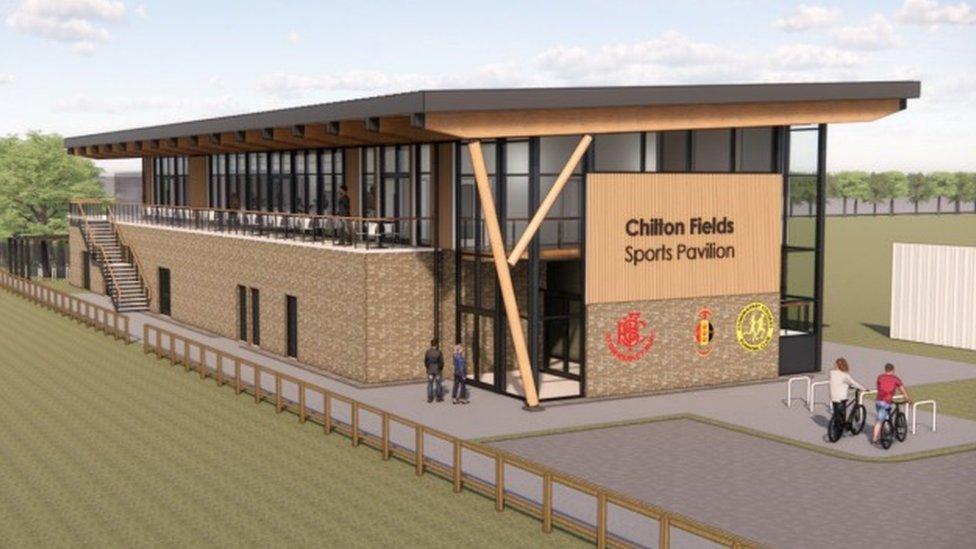Plans for food waste plant recommended for refusal
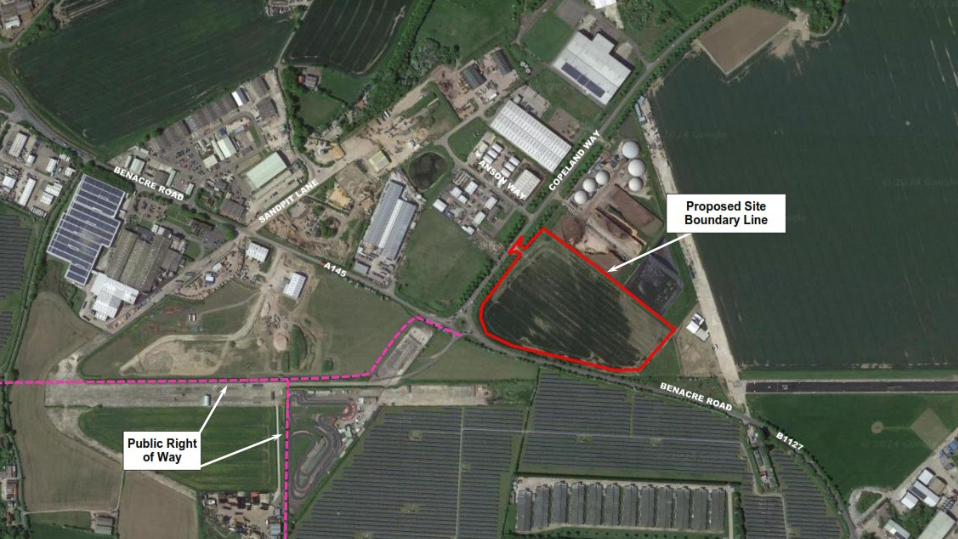
The proposed plant at Ellough, near Beccles, would handle 100,000 tonnes of food waste a year
- Published
Plans for a new food waste processing plant have been recommended for refusal over environmental fears.
The plant would be capable of turning food waste products into biogas for energy, as well as biofertiliser, on a site at Copeland Way, Ellough near Beccles, Suffolk.
It could handle 100,000 tonnes of food waste per year.
Council officers recommended the county council should refuse the application when the plans are discussed during a development and regulation committee meeting on 25 April.
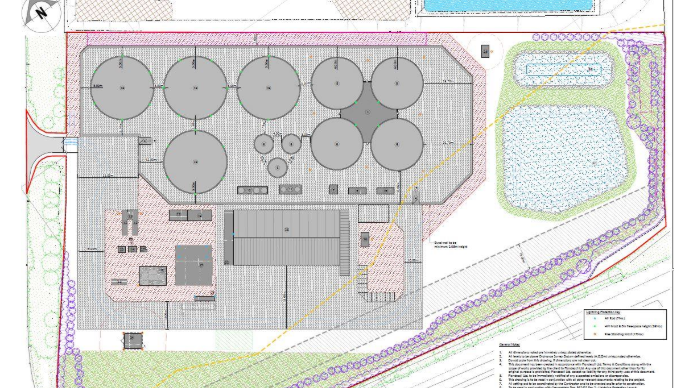
The food waste processing plant would open by 2026 if plans are approved
Council officers raised a number of concerns, including fears the proposed plans, which include the storage of "explosive gas", put the nearby Beccles Aerodrome at risk.
The end of the runway would sit close to where these gases were housed and "such proximity significantly changes the risk profile when considering events such as engine failure after take off or similar emergencies", officers said.
They added there was "insufficient information" detailed to address the landscape and visual impact of the proposal.
Other concerns were raised around the impact to air and water quality as well as the fact the site would be in open countryside.
Collection requirements
However, developers said in planning documents that "the need for the proposal is three-fold" - by tackling food waste, offering renewable energy generation and the economic benefits.
Six full-time staff could be hired, while the site would help avoid wider transportation of food waste from Suffolk to elsewhere in the country.
All councils in England have to introduce weekly food waste collections by 31 March 2026, with the government recently announcing £295m in funding, external to help with this.
It said that more than 10 million tonnes of food was wasted every year in the UK and that the collections would "prevent contamination of other waste which could be usefully recycled, as well as ensuring that food waste can be sent to anaerobic digestion facilities rather than needlessly lost to landfill".
"Directing food waste to these plants will generate more sustainable energy to power homes and businesses, and cut down the more than 18 million tonnes of greenhouse gas emissions associated with this waste," the government said.
Developers said the plant would "directly assist the county in fulfilling this food waste collection requirement".
The application received objections from several councillors as well as nearby parish councils, East Suffolk Council, the Civil Aviation Authority, and the Suffolk Wildlife Trust.
There had been 137 third parties also object including local residents while there had been 13 letters of support.
Follow East of England news on Facebook, external, Instagram, external and X, external. Got a story? Email eastofenglandnews@bbc.co.uk, external or WhatsApp us on 0800 169 1830
Related topics
Stories like this
- Published5 April 2024
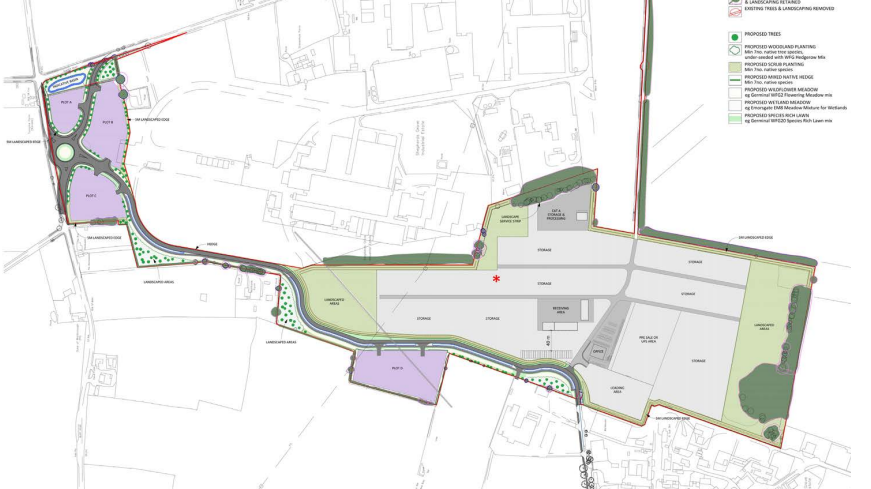
- Published3 April 2024
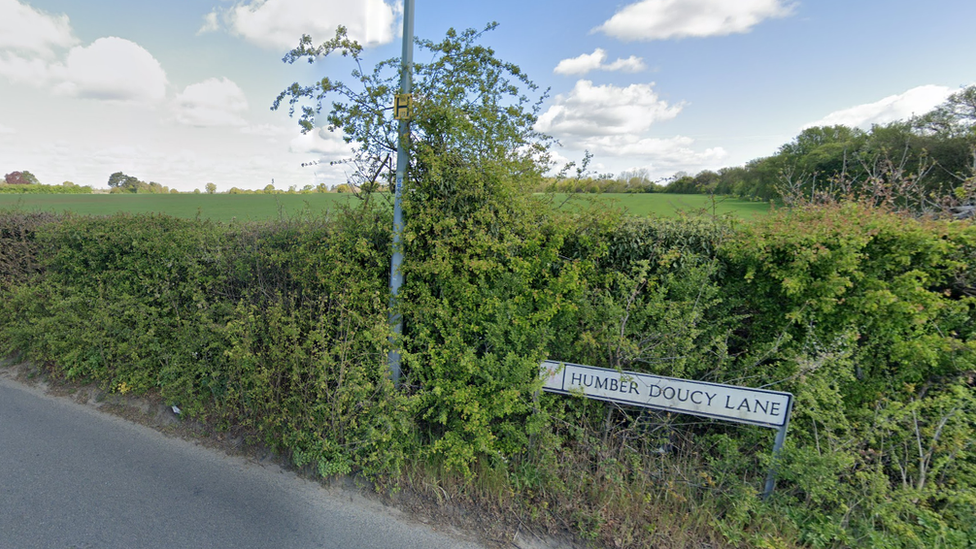
- Published21 March 2024
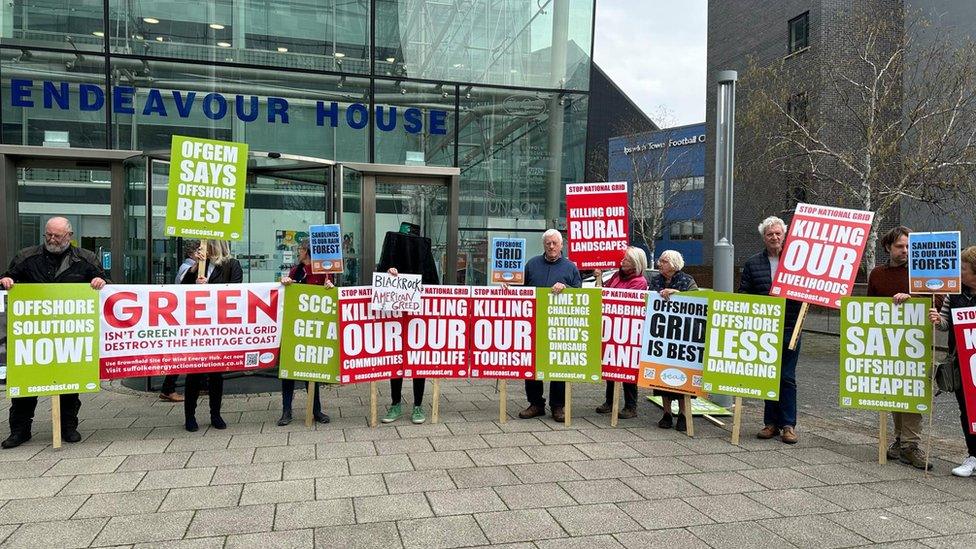
- Published15 February 2024
